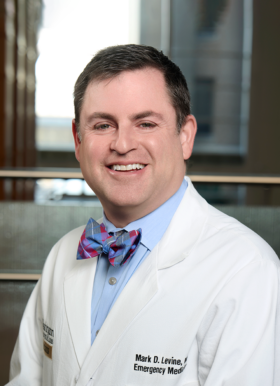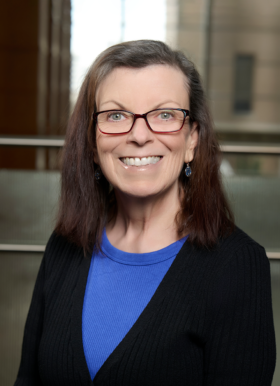For WashU Medicine students
Students in Phase 3 of their studies at WashU Medicine have two choices for rotating through the Department of Emergency Medicine: clinical elective and advanced clinical rotation.
Clinical elective
This is a four-week elective, where you’ll spend the majority of your time in the Barnes-Jewish Hospital (BJH) Emergency Department evaluating and treating undifferentiated acutely ill patients. For many of you, it is your first experience evaluating patients without a known diagnosis. Over the course of the rotation, you’ll become more proficient with H&Ps and begin to understand patient management of the undifferentiated patient. You will also have the opportunity to learn several procedures such as suturing and splinting and will be expected to assist with intubation, central lines and paracentesis.
You should take this elective if you are considering entering the field of emergency medicine. This rotation is offered year round, except for the months of July, August, September and October (blocks 1-4).
Advanced clinical rotation
This four-week rotation is offered year round, but it is restricted to students entering emergency medicine for the first four blocks (this allows WashU Medicine and visiting students to rotate during that time as they are preparing for residency applications and interviews).
In this rotation, you are expected to act as close to an intern as possible. You will evaluate and treat undifferentiated acutely ill patients, become more proficient with H&Ps and begin to understand patient management of the undifferentiated patient. If possible, you will be expected to take the lead on intubation, central lines, arterial lines, paracenteses, suturing and splinting. You will rotate in the emergency departments at BJH, Barnes-Jewish West County and Missouri Baptist.
For visiting students
Students who wish to apply for a rotation at Washington University School of Medicine are encouraged to start the process in February or early March to have the greatest choice of open rotation spots. You should send a copy of your CV and step 1 pass as well as an unofficial transcript to the course director, Mark Levine, MD, at levinem@wustl.edu. Once you’re pre-approved by Levine, you can then apply for an away rotation through VSLO.
Learn more about elective rotations for visiting students »
Rotation experience
Whether you’re from WashU Medicine or a visiting medical school, we look forward to having you rotate with us and experience emergency medicine.
Additional shifts
Depending on the level of the learner, you may be offered additional shifts with the ED pharmacist, respiratory therapists, nursing staff, toxicologists or teaching residents. Visiting students may also spend a shift in the St. Louis Children’s Hospital ED.
Time off
If you need time off during the rotation, contact the rotation coordinator at least two weeks in advance. Days off, including time off needed for residency interviews, are expected to conform to university policy. We will do our best to schedule at least two days off after a night shift.
Workload
When reporting for your first shift, introduce yourself to the team and discuss how to pick up new patients. Plan on seeing approximately six patients over the course of your shift. You’ll see the patient, discuss findings and plan, enter orders if possible, write a note, and then follow up on those patients and their laboratory or radiologic results.
Clinical shifts are approximately eight hours in length depending on the site, usually 7 a.m. to 3 p.m., 3 to 11 p.m., or 11 p.m. to 7 a.m. Other sites may have slightly different shift times. All students will have an approximately equal number of shifts, which allows you to experience the ebb and flow of the emergency department throughout the day and week. You will also be expected to attend Tuesday morning conference as well as Tuesday afternoon small group sessions, two simulation sessions, and journal club throughout the month.
For more information, contact:

Mark D Levine, MD
Director, WU Med Student Clerkship; Professor, Emergency Medicine
- Phone: 314-362-6743
- Email: levinem@nospam.wustl.edu

Dora Miller, C-TAGME, CHPM
Manager of Academic Programs
- Phone: 314-747-5010
- Email: doram@nospam.wustl.edu